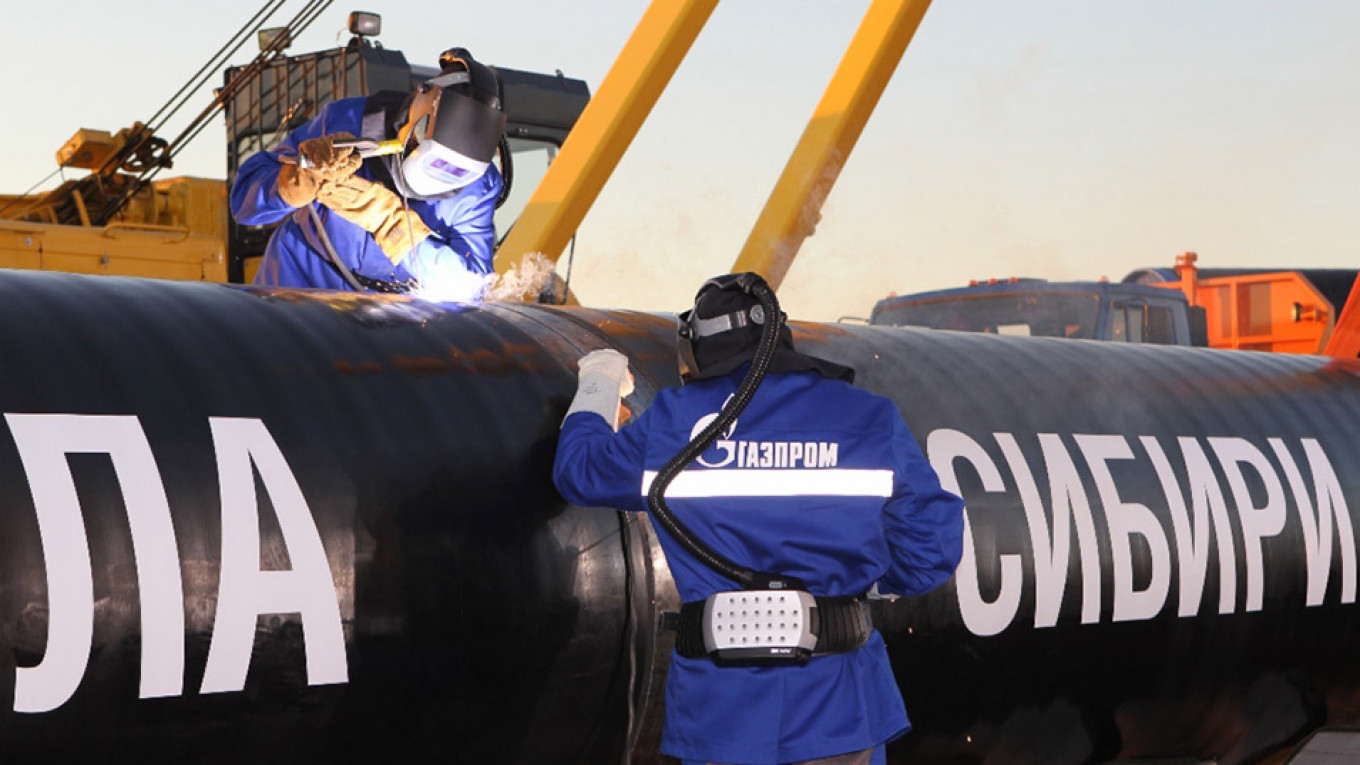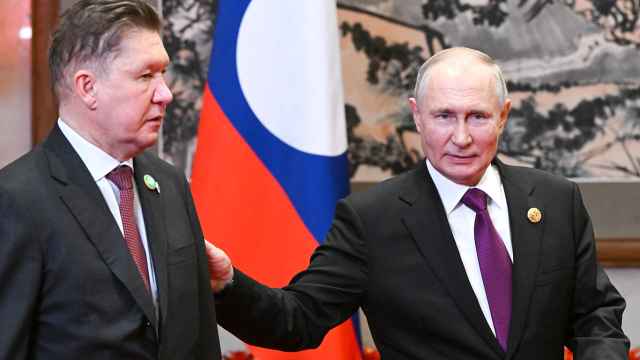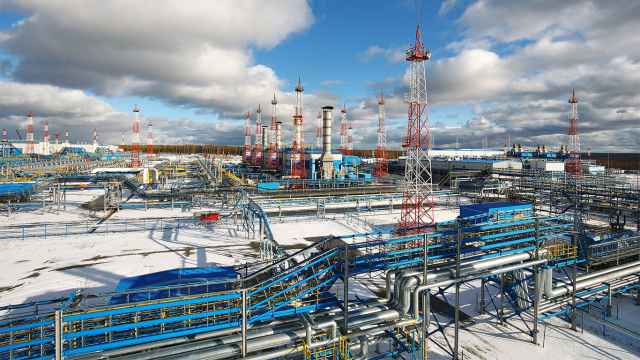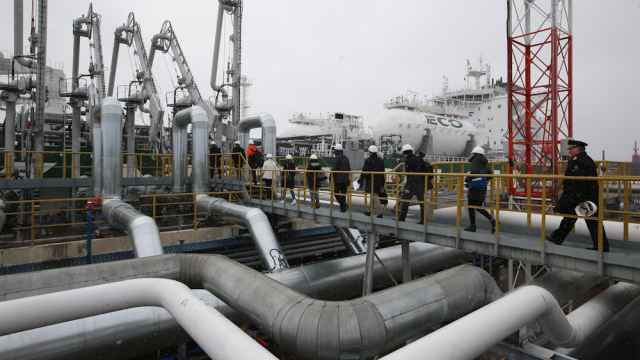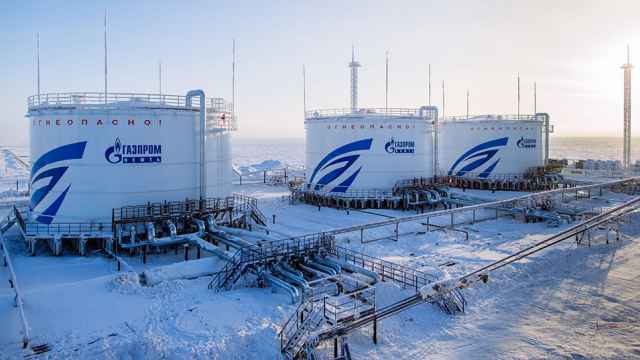Russia on Monday started piping gas to China, as the long-awaited Power of Siberia pipeline connecting the two countries came online.
President Vladimir Putin and Chinese premier Xi Jinping officially opened the 3,000 kilometer gas pipeline today via videoconference.
Russian state gas giant Gazprom will immediately start sending its gas southwards — the first time Russian gas has been sent directly to China. The two countries struck a $400 billion 30-year agreement for Russian gas exports back in 2014, signed by Gazprom on the Russian side and the Chinese government-owned China National Petroleum Corporation.
The pipeline will not become fully operational until 2025, when it will be able to carry 38 billion cubic meters of gas a year.
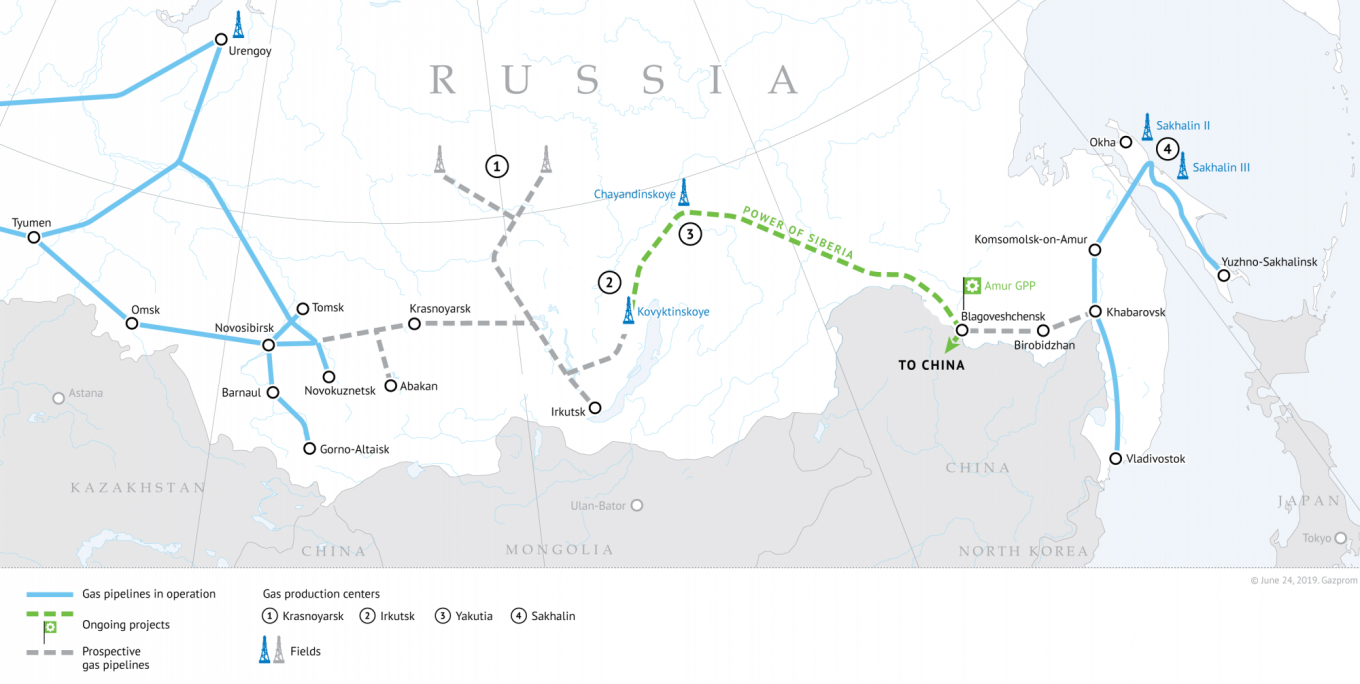
Putin previously called the pipeline “the world’s biggest construction project,” running from the Kovyktinskoye field, near Lake Baikal in Russia’s Irkutsk region to Blagoveshchensk on the Chinese border.
“The pipeline route passes through swampy, mountainous, seismically active, permafrost and rocky areas with extreme environmental conditions,” a statement on Gazprom’s website said.
“The absolute lowest air temperatures along the Power of Siberia route range from minus 62 degrees Celsius [-80 Fahrenheit] in the Republic of Sakha (Yakutia) to minus 41 degrees Celsius [-41 Fahrenheit] in the Amur Region,” it added.
The opening is the latest high-profile infrastructure project between Russia and China. Construction was completed on the first road bridge between the two countries last week. Trade between Russia and China stood at $87 billion in 2018, and Putin said that should hit $100 billion this year.
The opening of the Power of Siberia gas line is the first of three strategically important Russian gas pipelines that are due to come online in the coming months. Turk Stream — which will carry Russian gas to Turkey and southeastern Europe — is scheduled to start exports early January, and the controversial Nord Stream 2 pipeline linking Russia with Germany is set for a delayed launch in mid-2020, after the project received its final approval permit from Denmark in November.
The Nord Stream 2 project has been a thorn in U.S.-German relations, with legislation that would sanction the European firms involved in building the pipeline having already passed through the U.S. Congress. German newspaper Bild reported this weekend that the sanctions could come into force before the end of the year.
A Message from The Moscow Times:
Dear readers,
We are facing unprecedented challenges. Russia's Prosecutor General's Office has designated The Moscow Times as an "undesirable" organization, criminalizing our work and putting our staff at risk of prosecution. This follows our earlier unjust labeling as a "foreign agent."
These actions are direct attempts to silence independent journalism in Russia. The authorities claim our work "discredits the decisions of the Russian leadership." We see things differently: we strive to provide accurate, unbiased reporting on Russia.
We, the journalists of The Moscow Times, refuse to be silenced. But to continue our work, we need your help.
Your support, no matter how small, makes a world of difference. If you can, please support us monthly starting from just $2. It's quick to set up, and every contribution makes a significant impact.
By supporting The Moscow Times, you're defending open, independent journalism in the face of repression. Thank you for standing with us.
Remind me later.


